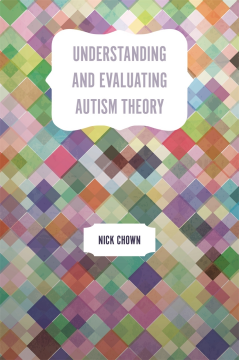
Additional Information
Book Details
Abstract
Addressing the full spectrum of theoretical output associated with autism and Asperger syndrome, this is the complete guide to autism theory - spanning from mainstream and alternative, through to non-autism specific theories that might be applied to autism.
Previous study on autism has made significant inroads into the individual branches of autism theory, however, no text has brought together the complete range of theories in an accessible textbook for students and academics. The author argues that a more obvious application of theory to autism intervention would be beneficial to practitioners. With access to the complete range of available autism and Asperger syndrome theory, from development theories to learning style theories, the academics and students working towards the practical application of theory to intervention will have all the necessary information at their disposal. The book is based on a series of autism theory lectures delivered for the NAS and Sheffield Hallam University.
Nick Chown is an independent autism researcher and trainer who also acts as advocate and mentor for various autistic adults. He is an Editorial Board Member of the Journal of Autism and Developmental Disorders and tutored for a number of years on the Sheffield Hallam/National Autistic Society Post Graduate Certificate in Autism and Asperger Syndrome course. He lives near Barcelona.
I have no doubt whatsoever that this should be regarded as one of the finest examples of a scholarly tome on autism theory ever published. Accessible, modern, accurate, and brilliantly written, it is a must for anyone wanting to gain an up to date knowledge of autism theory.
Dr Luke Beardon, The Autism Centre, Sheffield Hallam University
An interesting and much needed book that takes a broad overview of autism theories and integrates them in a thoughtful way. As the author notes theories have had important functions in terms of stimulating our thinking about autism and approaches to treatment; they have, however, rarely been looked at in a comprehensive and integrated fashion. This book will be of great interest to researchers and clinicians alike.
Fred R Volkmar, M.D., Irving B. Harris Professor in the Child Study Center, Yale University School of Medicine, Editor in Chief, Journal of Autism and Developmental Disorders
This book is a comprehensive and critical appraisal of Autism, past and present. It is a book for, "all seasons", from the neophyte to the experienced mental health professional, as well as parents wanting to understand Autism in greater detail. It makes fascinating and informative reading and is surprisingly for a book like this, "a page-turner". I found it fascinating to read. His discussion of disability versus diversity in Autism is superb and interesting, and the book is exhaustively referenced. It is the best book on Autism Theory that I have read.
Professor Michael Fitzgerald, Trinity College Dublin
Table of Contents
| Section Title | Page | Action | Price |
|---|---|---|---|
| Understanding and Evaluating Autism Theory | 3 | ||
| 1. Is Autism Theory Really Necessary? | 7 | ||
| 2. Behavioural Theory: No Longer About Rats and Monkeys | 29 | ||
| 3. Developmental Theory: From Three Mountains to Two Dolls | 68 | ||
| 4. Learning Style Theory: A Theory for Every Hour of the Day | 103 | ||
| 5. The Three Big Ideas of Cognitive Autism Theory | 144 | ||
| 6. Other Voices on Autism Theory | 192 | ||
| 7. The Weak Central Coherence of Autism Theory | 228 | ||
| 8. Autism Theory and Practice: Ideology, Faddism, Politics and Marketing | 257 | ||
| 9. What Has 70 Years Taught Us about Autism? | 280 | ||
| References | 308 | ||
| Subject Index | 355 | ||
| Author Index | 363 |
